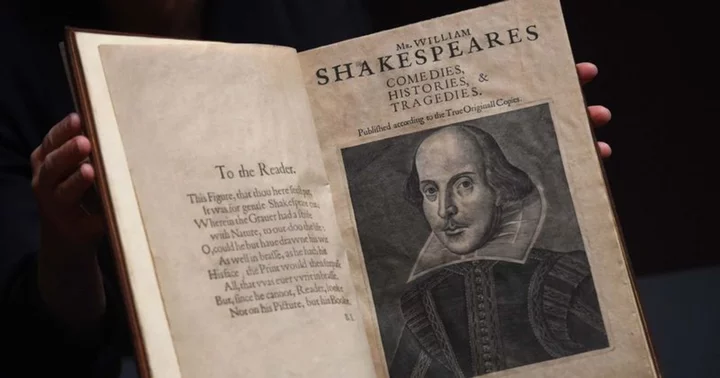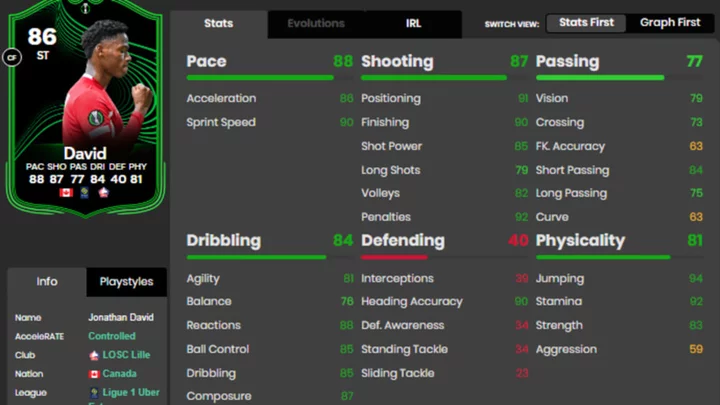HILLSBOROUGH COUNTY, FLORIDA: Schools in Hillsborough County have decided to cut back on the amount of William Shakespeare’s texts that pupils will study in the upcoming year, citing Florida’s new education laws.
The curriculum guidelines for Hillsborough County Public Schools were revised under the state’s Parental Rights in Education Act, commonly known as the “Don’t Say Gay” law, which forbids in-class discussion of sexual orientation or gender identity.
The legislation, which came into effect on July 1, states that if a school district finds material that contains the state’s definition of “sexual conduct,” it “shall discontinue use of the material for any grade level or age group for which such use is inappropriate or unsuitable,” according to Tallahassee Democrat.
Why are Shakespeare's texts being targeted?
Shakespeare’s texts in Florida schools' curriculum had been at risk since state governor Ron DeSantis signed the new legislation in March 2022.
It is widely considered that the writer’s use of suggestive puns and innuendo can be sexual in nature, and the idea of premarital and underage sex is part of Shakespeare’s 'Romeo and Juliet'.
In Shakespeare's original story, Juliet is only 13 years old. Romeo's age is uncertain but he is considered to be between 15 and 17 years, a teenager on the cusp of full adulthood in most interpretations of the play.
Some state teachers believe that Shakespeare’s texts have some raunchiness that might be an issue under the new laws.
School media specialist Kathleen Malloy also told US Today that Shakespeare’s texts are "precious as a piece of literature” but with just one or two small scenes it can fall under the "sexual conduct" definition.
Did Florida pull Shakespeare's books from schools?
Schools have not completely slashed Shakespeare’s work but teachers will now be teaching only excerpts of his work, rather than whole plays such as 'Romeo and Juliet', 'Hamlet' and 'Macbeth'.
The writer’s books will be available for checkout at media centers at schools, said the district, which covers the Tampa area.
Before the implementation of new guidelines, English classes would require students to read two complete novels or plays, one in the fall and one in the spring, according to Edweek.
"First and foremost, we have not excluded Shakespeare from our high school curriculum. Students will still have the physical books to read excerpts in class," the district said in a statement, adding "Curriculum guides are continually reviewed and refined throughout the year to align with state standards and current law."
Alternatives to Shakespeare?
The school district also stated that the other reasons behind slashing Shakespeare’s work include revised state standards and an effort to get students to read a wide variety of books for new state exams.
“We need to make sure our students are prepared with enough material during the year so they will be prepared for their assessments,” school district spokeswoman Tanya Arja said.
This will allow teachers to give pupils a broad range of knowledge based on one whole novel and excerpts from five to seven novels or plays.
‘The world is laughing at us’
The school district’s new move has attracted a wave of backlash and this included state education officials. “The Florida Department of Education in no way believes Shakespeare should be removed from Florida classrooms,” department spokesperson Cassie Palelis told the Tampa Bay Times via email on Tuesday, August 8. “In fact, eight works by Shakespeare are included in the sample text list within the (state) Standards for English Language Arts, including ‘Hamlet,’ ‘Macbeth’ and ‘Romeo and Juliet.’”
In another report by the same outlet, Joseph Cool, a reading teacher at Gaither High School, felt the changes were "absurd". "I think the rest of the nation — no, the world, is laughing at us," he told the publication.
"Taking Shakespeare in its entirety out because the relationship between Romeo and Juliet is somehow exploiting minors is just absurd," he said, adding that students will "absolutely not" receive the same educational experience from being taught excerpts compared to studying the plays as a whole.
School board member Jessica Vaughn also criticized the move, writing on Facebook that "it feels that much of this is intentional, in order to cause as much chaos in public education as possible so that the collapse of public education is swift and the agenda of education privatization can move forward with fewer obstacles."









